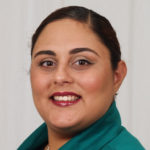Letter from the Editor: Proteus 2015 Fall Volume XXVIII Issue No 3

Proteus
Issue: 2015 Fall Volume XXVIII Issue No 3Table of Contents
Editor's Corner
Letter from the Editor

By Dan DeCoursey
Dear readers:
Welcome to the fall issue! It is getting cooler in most of the country, and we believe that Proteus is getting cooler, too.
First things first: Our tireless editor-in-chief, Athena Matilsky, is currently recovering from a concussion, so she asked me to write this letter for her. All of us on the editorial staff are very grateful for all of her hard work and guidance, and we are wishing her the speediest of recoveries. Athena, please take all the rest and relaxation (and Netflix streaming) you need, because we need you for the winter issue!
Where I’m from in the Midwest, we have a saying regarding the fall: If you don’t like the weather, just wait a minute. In other words, be ready for sudden, drastic changes. That would be good advice for the T & I community as well. In her letter, NAJIT Chair Esther Navarro-Hall reminds us of all of the work NAJIT is doing behind the scenes to help us get ready. The interpreting community is facing many issues and challenges: new technologies, language access plans, and huge changes for interpreters in immigration courts. Esther encourages all of us to volunteer for NAJIT committees so that our organization can respond to these issues as quickly and effectively as possible. Of course, some issues we encounter need to be resolved on the spot. In “How I Handled It,” Ernest Niño-Murcia writes about a split-second decision he had to make that strikes at the core of our ethical obligations.
This edition’s feature articles should give us cause for hope, as they both demonstrate the huge demand and need for our services. Chris Kunej discusses how some state courts are failing to provide meaningful language access to persons who speak languages of lesser diffusion, a problem that he believes can be solved with more uniformity among state courts. David W. Gilbert points out that in Australia substandard translations of electronic surveillance transcripts are not only a growing issue for the courts, but are rising to the level of a national security hazard.
We hope you enjoy this issue. It’s the product of a lot of brainstorming by the staff. In the near future, we hope to revamp our newsletter’s design to make Proteus even more eye-catching. Of course, quality content is what matters most. Your contributions will make Proteus even cooler. Big changes are ahead for the T & I community, and the more we share ideas with other, the better we can all navigate these challenges. So research, write, and submit! Those leaves in your yard can wait a bit longer.
Kind regards,
Dan DeCoursey
Meet the Editors
Editor-in-Chief of Proteus

Athena Matilsky is a Spanish-language interpreter certified by the United States federal courts and approved at the master level by the New Jersey state courts. She is also a certified healthcare interpreter, and she holds a B.A. from Rutgers University in Spanish interpretation and translation. She is a full-time staff interpreter at Mercer County Superior Court in Trenton, NJ, where she was recently involved in the working group for drafting the statewide Language Access Plan. She teaches classes in interpretation with de la Mora Interpreter Training and gives private classes to individual students. In addition to being editor-in-chief of Proteus, she is a regular contributor to the NAJIT blog and a member of ATA. When she is not busy writing or interpreting, you may find her in acrobatic partner yoga poses or studying French.
Editors of Proteus

Arianna M. Aguilar has a degree in communications and has been interpreting and translating since 1999. She has been a certified court interpreter in North Carolina since 2005, and master certified Spanish-language court interpreter since 2013. She is president of Latino Outreach Consulting of NC, Inc., a translation and consulting agency, and is a published author. She has given presentations on a range of topics at both NAJIT and American Translators Association (ATA) conferences.

Rosemary Dann currently lives in Phoenix, AZ. (Yes, but it’s a DRY heat.) She holds a B.A. and M.A. in Spanish language and literature, as well as a J.D. degree. She is also a Massachusetts state-certified Spanish-language court interpreter. She has worked as a high school and college instructor, held various law jobs including law clerk to two judges, a public defender, and a private practitioner, and has free-lanced as a judiciary interpreter in Massachusetts, New Hampshire and Florida. She joined NAJIT after attending “The Institute” in 1999 (thank you, Cristina Helmerichs!) and has since served on numerous NAJIT committees and on the Board of Directors for six years, two as chair. She took over the position of editor-in-chief of Proteus upon Nancy Festinger’s retirement from that post, and now turns over the reins to the very capable Athena Matilsky. She is staying on staff as the unofficial “advisor-in-chief”, as she has returned to college as a theater major in performing arts. Her bucket list includes visiting Machu Picchu, seeing her son married, and appearing in a national TV commercial.

Dan DeCoursey is a state and federally certified court interpreter in San Diego, as well as an ATA-certified Spanish>English translator. After working for several years as a teacher and textbook editor, he was ready to make a change, so he moved to Guadalajara, Mexico, where he earned a master’s degree in translation and interpreting from the Universidad Autónoma de Guadalajara. He has over a decade of experience working as an interpreter in both state and federal court, and as a freelance translator specializing in legal documents. Currently, he is a staff interpreter at the U.S. District Court for the Southern District of California (San Diego).

Cecilia Golumbeanu is a Romanian-language court interpreter and a French-language translator in New York. As a Fulbright Scholar at the University of Michigan in Ann Arbor, she wrote a legal and economic bilingual dictionary of American and European terms, published in 2005 in Romania. She has a bilingual blog of thoughts and links on language, arts and science at ceciliago.wordpress.com.

Andre Moskowitz is a Spanish-language interpreter certified by the United States federal courts and the California state courts. He is also a Hispanist, lexicographer and dialectologist, who has published a series of works in the areas of Spanish lexical dialectology and Spanish lexicography. He taught English in Colombia and Ecuador for four years, and holds a B.A. in humanities from Johns Hopkins University (1984), an M.A. in translation studies from the City University of New York Graduate Center (1988), and a second M.A. in Spanish with a minor in Portuguese from the University of Florida (1995). He is certified by the American Translators Association as a Portuguese>English, Spanish>English and English>Spanish translator. He is also an editor for Intercambios, the newsletter of the Spanish Language Division of the American Translators Association (ATA).

Kathleen Shelly a Delaware and Maryland translator and interpreter certified by the Consortium for Language Access in the Courts, has worked as a professional interpreter and translator for the past 18 years. She has a master’s degree plus doctoral work in Latin American literature from the Ohio State University, and was a college professor for 12 years. A member of NAJIT since 2005, she has served as Secretary of the Board of Directors and a co-editor of Proteus, and always welcomes the opportunity to work to promote the interpreting profession. She is also a member of ATA and Delaware Valley Translators Association.
Feature Articles
Electronic Surveillance and Systemic Deficiencies in Australia’s Language Capability: Implications for Courts and National Security

By David W. Gilbert, MSocSc (Trans&InterpSt), PhD
The contemporary security environment has compelled governments to expand the portfolios of national security and law enforcement agencies in response to increases in instances of serious and organized crime and the heightened threat of violent extremism. However, unlike the United States, which introduced a National Security Language Initiative (NSLI) in 2006, Australia has yet to explicitly address the importance of language capability[1] development required to keep Australians safe from serious and organized crime. This gap in policy-making has significant implications for Australia’s national security and the criminal justice system, as discussed in this article.
Rapid advances in technology have seen an increased reliance upon electronic surveillance measures to monitor and prosecute alleged criminal behaviour, particularly in relation to drug-related crime (Adamoli et al., 1998). In a globalized world seeing rapid increases in technology and transnational crime, community interpreters and translators are frequently engaged by law enforcement and national security agencies to transcribe and translate telephone calls, text messages, emails and conversations intercepted by covertly placed listening devices for operational and evidentiary purposes. Translated transcripts presented as evidence in the open court system provide a valuable source of data that can shed light on the reliability of Australia’s language capability relied upon to meet national security objectives.
March to the Beat of the CLAC Drummer: How Lack of Uniformity of CLAC Member State Reciprocity Requirements May Deny LEP Persons Meaningful Access to the Courts

By Chris Kunej
Introduction
Ms. Lidija Tocilj, a Croatian astrologist/journalist, was probably not referring to interpreting when she said, “All perfection is foreign to life.” 1 Nonetheless, interpreters and translators must strive for near perfection in whatever field they practice. The importance of accurate interpreting goes without saying. There are numerous examples of the results of interpreter and translator error, ranging from a 71-million dollar verdict in a medical interpreting error case,2 through misinterpreted phrases in diplomatic and military situations and documents, directions for product use, business correspondence, and the like. There are numerous internet “translation mistake” websites, and various articles have published mistranslation “gems”.
Perhaps it is difficult to establish standards and criteria for the interpreting profession, because it is one in which the service seems to be intangible, unlike a painting whose quality we can subjectively assess or a vehicle repair job that either makes the car run or does not. It may be for this very reason that interpreting appears to be a skill that many bilingual people believe they are capable of doing well; but for this same reason, both the interpreting and translation professions need to be well regulated.
NAJIT News
Letter from the Chair

By Esther Navarro Hall
My dear colleagues,
It has been a year of big changes, and we continue to breathe new life into our association.
Our unique perspective gives us a bird’s-eye view of the new developments taking place in our profession. Since we are the largest association of its kind in the U.S., we are tasked with keeping the issues that affect our members at the forefront.
In the past few months we have heard from our fellow colleagues about many of the current challenges in our field, such as language access plans, immigration interpreting issues and the use of new technologies. We are taking a close look at the big picture to determine how we can best support our members. At times, the pace might seem slow, but we are committed to taking the steps that continue to move our association and our community of interpreters and translators in a positive direction.
Our beloved association is undergoing a substantial transformation. We have:
- A new administration
- New NAJIT Board officers
- New SSTI officers
- New committee volunteers
- New ad hoc committees
Much of the work is happening in the background with tireless efforts on the part of our board members, volunteers and our new management team. Part of this work has involved updating web pages, reconfiguring all committees and migrating huge amounts of information into a new database. Although this type of transition is not without its challenges, for those of us looking from the inside out it has been almost seamless—and the greatest part of it has been accomplished in the space of merely two months!
In order to keep all of our association’s moving parts working in harmony, all officers and volunteers have been working after hours to make NAJIT the best association it can possibly be, not only for those who specialize in judiciary interpreting, but for all professional interpreters and translators. To this purpose, there are many important questions we must consider in the very near future. Chief among them are:
-
- What do we want our association to become? and
- What do we want it to accomplish?
Here are some of the aspects of our profession which our members have told us are of utmost importance to them:
- We want to be well respected.
- We want to have a gathering place of like-minded professionals.
- We want to find mentors for those of us who are just entering the profession.
- We want to educate ancillary professions and the community at large about what we do.
- We want to continue to maintain our high standards in regards to ethics, best practices and competence.
- We want to continue to advocate for and promote the interpreting and translation professions.
- We want to continue to bring together certified interpreters throughout the United States.
- We want to receive the best training and continuing education possible.
- We want to give the interpreting and translation professions the place they deserve in society, in the U.S. and abroad.
If there is anything our Atlanta conference showed us, it is that good will and fresh ideas for all these concerns are out there. During our last conference, our 7:00 a.m. Town Hall Meeting had a record number of participants. Our members showed up bright and early full of ideas and suggestions for a bigger and better NAJIT…and this was just the beginning. Our members are hungry for a forum and an environment which will allow maximum participation. NAJIT is working to create that forum… and we have some exciting developments in store for you this year.
We understand that our members want to have a voice in making our industry better, so we’d like to invite you to volunteer for one of our committees (standing or ad hoc). We can become a force that will initiate immediate change in our profession, if we are ready to take action. In the meantime, we will continue to work in your favor to give you that voice, level the playing field, and strive to improve our profession at all times. Let us become a close-knit group of professionals dedicated to helping each other. If we do so, I am sure incredible results will follow.
Yours in service,
Esther
Management Change Announcement
Esteemed members,
After careful and difficult deliberation, the NAJIT Board of Directors has voted to end its management agreement with Alliance Management Group effective July 31st, 2015. We sincerely appreciate and acknowledge the hard work and dedication of Robin Lanier and all the individuals who served as NAJIT Administrators, most recently Tanni Rednor. We wish them both continued success in their future endeavors.
As of July 9th, we have contracted with Comprehensive Management and Consulting, Inc. (CMAC) to provide management services and support staff. CMAC is owned and operated by Rob Cruz and Susan Porteous. Rob has a wealth of experience in the operation of non-profit organizations, having served in leadership positions for numerous associations. In addition, he has expertise gained through years of experience in the private sector and brings industry-specific knowledge that will be invaluable to our association. Rob will serve as our new Executive Director and will oversee most of the day-to-day operations of NAJIT. His partner, Susan Porteous, has 17 years of experience in the financial services industry, much of it focused on financial management, training, and event planning. Susan also holds the Certified Financial PlannerTM designation. She will serve as NAJIT’s new Administrator. Rob can be reached at Execdirector@najit.org and Susan at Admin@najit.org No other existing email distribution lists should be affected by this change. NAJIT’s main office location will now be in Atlanta, Georgia. Our new address and phone numbers are:
2002 Summit Blvd. Suite 300
Atlanta, GA 30319
404-566-4705
404-566-2301
Rest assured that we will work closely with CMAC to minimize any disruption in services while striving to offer the best member experience possible. Our entire Board of Directors is excited to work with CMAC and we look forward to a great partnership in service of all NAJIT members.
Thank you for your continued support,
The NAJIT Board of Directors
Esther Navarro-Hall, Chair
Claudia Villalba, Secretary
Bethany Korp-Edwards, Treasurer
Jennifer De La Cruz, Director
Melinda González-Hibner, Director
Regular Columns
Ask an Interpreter

By Dan DeCoursey
This new column aims to explore the lighter side of interpreting. Readers are encouraged to send offbeat questions about anything having to do with the T & I community.
Do interpreters watch telenovelas?
Yes, but it’s purely linguistic research. Here’s a quick guide to Spanish-language telenovelas: the U.S.-based network Univision has exclusive rights to rebroadcast telenovelas from the Mexican network Televisa. Inevitably, the telenovelas aired on Univision lag far behind those in Mexico, so whenever you discuss one of these programs with someone in Mexico, always remind them not to spoil the next chapter for you! (To avoid any biased research, of course.) Azteca America rebroadcasts many of its telenovelas from its Mexican network, TV Azteca. Telemundo produces its own novelas (short for telenovelas), most of which are filmed in Miami, so your Mexican acquaintances will need cable should you wish to consult them regarding any troublesome idioms. While many telenovelas contain the same romantic melodramas as U.S. soap operas, lately Televisa (aired here on Univision) has been experimenting with comedic novelas (Amores con trampa [Love and Snares], Hasta que el dinero nos separe [Until Money do us Part]) and Telemundo with narconovelas (El señor de los cielos [The Lord of the Heavens], La reina del sur [The Queen of the South]). U.S. soap operas last indefinitely and are usually aired during the day, but Mexican telenovelas rarely last longer than one year, and they are often broadcast during prime-time slots—no need to program your DVR! Many of Mexico’s biggest stars appear in novelas. Mexican singers such as Pedro Fernández and Thalía have dabbled in novelas. Gael García Bernal, an internationally-renowned movie star from Mexico, got his start in telenovelas. Even First Lady Angélica Rivera started her career as a singer and then went on to become a famous telenovela actress, most memorably as Gaviota in Destilando amor—yes, it does mean “distilling love,” but it sounds much better in Spanish—with a catchy theme song by Pepe Aguilar.
Recently-enacted telecommunications reforms in Mexico could potentially shake up the industry and create more competition. The newly minted Federal Telecommunications Institute now has the authority to impose sanctions or even forcibly split up telephone and TV companies with a market share of 50 percent or more. Currently, Televisa and TV Azteca control 94 percent of commercial TV frequencies. Reform has already led to savings for telephone customers in Mexico; long distance fees were eliminated, and roaming fees have been decreasing. In fact, these savings have started to cross the border, as many U.S. mobile carriers now provide unlimited calls to Mexico at very low prices. Critics, however, say that these reforms do not go far enough, especially for the TV industry, long dominated by a powerful duopoly that could simply sell off enough subsidiaries until each possesses slightly less than half of the market share. Time will tell how effective these reforms are. Or as they say in the industry…stay tuned!
One final rule regarding telenovelas: this is research, so do not let yourself get caught up in the inevitable plot twists (example: Amores con trampa, in which actor Eduardo Yáñez’s character is tempted to leave his wife for a younger attractive neighbor—and after she faithfully stood by his side for all those years!) Just remember: even if all seems lost and beyond hope, don’t worry, everything usually works out in the end.
[Dan DeCoursey is a state and federally certified court interpreter in San Diego, as well as an ATA-certified Spanish>English translator. After working for several years as a teacher and textbook editor, he was ready to make a change, so he moved to Guadalajara, Mexico, where he earned a master’s degree in translation and interpreting from the Universidad Autónoma de Guadalajara. He has over a decade of experience working as an interpreter in both state and federal court, and as a freelance translator specializing in legal documents. Currently, he is a staff interpreter at the U.S. District Court for the Southern District of California (San Diego).]
Cracking the Code: What’s that Word in your Language?

By Cecilia Golumbeanu
[Editor’s Note: This column provides our readers with words and phrases to ponder. Send us an email and let us know how you would say it in your language!]
Reader responses from last month’s Terminology Corner for the term, “blowback”:
- I’ll admit. I’m stumped! –Emily Alfonso Ortiz
- This generated quite the conversation in our office a week or two ago. Today, James Hontoria tells me that “blow-back” originated from the oil industry. During the drilling process, you may encounter a pocket of gas that flows up and catches fire: “blow-back.” He contends that a Spanish translation could be “retroexplosión” or something similar. My colleague Maria Teresa votes for “resoplido.” I think something less literal, such as “consecuencias negativas” might be a good translation (though I’m not one hundred percent thrilled with that). The conversation continues… :)—Athena Matilsky
This month’s Cracking the Code: Computer Crime and Cyber Crime
Most reports, guides or publications on cybercrime begin by defining the terms “computer crime” and “cybercrime.” In this context, various approaches have been adopted in recent decades to develop a precise definition for both terms. Before providing an overview of the debate and evaluating the approaches, it is useful to determine the relationship between “cybercrime” and “computer-related crimes.” Without going into detail at this stage, the term “cybercrime” is narrower than computer-related crimes as it has to involve a computer network. Computer-related crimes cover even those offenses that bear no relation to a network, but only affect stand-alone computer systems. (International Telecommunication Union, 2012, Understanding cybercrime, 11. Retrieved from http://bit.ly/1HLR4pZ)
The O.E.D.’s entries date from 1972 and 1991, respectively:
computer crime n. crime involving illegal access to or manipulation of electronic data; an instance of this.
cybercrime n. crime or a crime committed using computers or the Internet.
How would you say these phrases in your language? Let us know and you might see your response in the next issue of Proteus!
[Cecilia Golumbeanu is a Romanian-language court interpreter and a French-language translator in New York. As a Fulbright Scholar at the University of Michigan in Ann Arbor, she wrote a legal and economic bilingual dictionary of American and European terms, published in 2005 in Romania. She has a bilingual blog of thoughts and links on language, arts and science at ceciliago.wordpress.com.]
The views and opinions expressed are those of the author and do not necessarily reflect the official position of NAJIT.
How I Handled It

By Ernest Niño-Murcia
[Editor’s Note: This feature explores how individual interpreters confronted difficult situations in their respective jurisdictions. When in doubt about a particular solution, it is best to consult a supervisor or experienced interpreter in your jurisdiction. Finally, please consider submitting responses to this article or describe a situation of your own and tell us how you handled it!]
When Doing the Right Thing Feels Wrong: A Lesson on Interpreter Ethics in the Real World
When I began my training as an interpreter, the ethics code was one of the first things covered in my state’s weekend orientation program. I familiarized myself with the ten canons of ethical practice and felt that all seemed pretty straightforward. It was clear to me why it was inappropriate for interpreters to omit information, interpret for a friend, or offer their own opinion in a proceeding. Once I began actually interpreting in court, however, a more complex picture emerged; I realized that ethics in practice in a live courtroom were not as clear-cut as abstract principles on a page. I learned firsthand that situations could emerge for which the code of ethics did not have a clear answer, and about which experienced, ethical interpreters could disagree.
Shortly after I earned my state certification, I found myself in court at a defense attorney’s request to interpret for a defense witness. As we were waiting to go into the courtroom, I was sitting across the hall from the witness to put some space between us and lessen any temptation the witness may have to talk to me. When the defense attorney stepped away for a moment, though, I saw the prosecutor approach the witness, and I came over to interpret their conversation. The prosecutor wanted to know if he could ask the witness some questions before the hearing (basically getting a preview of what the witness would be saying on the stand to be able to prepare his response). The witness agreed and the prosecutor gestured to an empty meeting room.
Negotiating this situation required a split-second decision on my part (which I will share below), but reflecting in hindsight on the issues raised that day, it was really about weighing the principle of equal footing for litigants, no matter their language, against the moral quandary of interpreting and thus facilitating a questionable interview. I would define equal footing as the notion that limited English proficiency parties (LEPs) should be afforded the same access to justice as those who speak English well enough to not require the assistance of an interpreter. As an interpreter, this approach requires you to constantly ask yourself, “How would this go down if this person spoke English?” Equal footing is an idea that cuts both ways for LEP’s, though. Just as an interpreter should not comply when a party prefaces a statement with, “Don’t interpret this:” (because doing so would put the LEP at an unfair disadvantage compared to an English speaker who would be able to hear anything said in their presence), an interpreter should not offer guidance or advocacy that an English speaker would not receive in that same situation. Specifically relating to the situation at hand, if the witness I had before me spoke English, he would be free to decide for himself whether to accept the prosecutor’s request for informal questioning before the start of the proceeding, and as such I should continue to interpret as long as those two parties are talking to each other.
Arguments against interpreting the questioning touch on an interpreter’s responsibility to both the Court and the defense attorney. A basic premise of this would be that the prosecutor’s questioning without the defense attorney present is inappropriate if not unethical, and that the interpreter should not facilitate it by agreeing to interpret it. As the interpreter, I was, after all, in a position to shut the whole thing down if I were to refuse to interpret the kind of ex parte communication the prosecutor was hoping to have with the witness. If I said something to the effect of, “We need to wait for the defense attorney to get back before I interpret any questioning of their witness,” the plan would be shot, as the defense attorney probably would have never signed off on that kind of maneuver. This raises a different question: how much loyalty do I owe the attorney who requested me? So much that I should not interpret an exchange their witness has freely agreed to enter into because it does not further the interests of the attorney or their client? It bears noting that although the attorney had been the one to call and request that I appear, I was being paid by the court for my services that day. So I could not have been said to be “working for the defense attorney.” The degree of free will exercised by the L.E.P. in that situation could be debated (the witness may not have realized he could have refused the questioning or even knowing that, may not have felt comfortable refusing) but to remedy any of these issues, I would have had to step out of my neutral role to advocate (directly or indirectly) for the witness.
In the moment I had to decide what to do, I ultimately opted to interpret the exchange based on the principle of equal footing. As questionable as it may have been for the prosecutor to try to question a witness without defense counsel present, I reasoned that if the witness had been English-speaking, he would have been free to decide for himself if he had wanted to be questioned. As discussed above, the downside of equal footing for LEPs is that by interpreting in some situations, we are in effect preserving their right to be tricked, coerced or confused like an English speaker. Our duty as interpreters is first and foremost to our code of ethics and not policing attorneys’ ethical practices. We cannot facilitate the commission of a crime by interpreting, but while the situation outlined here may have been questionable in terms of etiquette among attorneys, it was not illegal. As much as we may not like how certain proceedings play out, maintaining neutrality is a fundamental principle of ethical practice. In this instance, I did not feel comfortable stepping out of my neutral role and refusing to interpret an exchange the witness had agreed to have. Circumstances dictated choosing the lesser of two evils and in this instance, the best option was to maintain neutrality and interpret the questioning. However, I realize others may see it differently and welcome further discussion.
[Ernest is currently a freelance legal and medical interpreter and translator based in Des Moines, Iowa. As a state and federally certified court interpreter, he has interpreted legal proceedings and prepared translations, transcriptions and expert witness reports/testimony for clients in the private and public sectors. Niño-Murcia is also a contract interpreter and quality assurance evaluator/trainer for Lionbridge. In addition to his work in the field, he has given talks and workshops to interpreters, judges and attorneys in forums such as NAJIT and state/regional conferences. He graduated from Brown University with a B.A. in anthro-linguistics and is a Jeopardy champion (2012).]
The views and opinions expressed are those of the author and do not necessarily reflect the official position of NAJIT.
Interpreters Everywhere

By Emily Ortiz Alfonso
To be accurate, the title is misleading. After all, I was certified by the state of South Carolina, and the state of North Carolina has granted me reciprocity. Most court interpreters have entered this time-honored profession simply by happenstance. Indeed, a good number may have made glaring errors which hopefully have been left in the past. During NAJIT conferences, we gather and celebrate the victories made within the judicial system and lament the remaining inadequacies that progress at a sloth’s pace. This article highlights the refreshing experience and knowledge gained by this interpreter in the Tar Heel State.
At the behest of another certified colleague, I requested and was granted reciprocity. Although my former career was that of a legal secretary, the courtroom was a rare trip for me. Filing motions and other petitions were done at the courthouse. Only three or four times did I venture into summary or criminal court. I was always uncomfortable. My naivety had me interpret a three-hour trial without a teammate. NAJIT was not in my vocabulary in those days. Without ever taking any interpreting courses, classes, or workshops, I took the oral exam in August of 2012 and passed. The title of certified court Interpreter was conferred upon me, and with great pride and confidence, the year 2013 marked the beginning of my journey into the North Carolina court system.
I learned a lot of things there. Here is a list of them:
- Check-in with clerk, assistant district attorney (ADA), and judge
- Where interpreter sits while waiting
- Location of dockets
- Where is the ideal placement of interpreter for LEP person and counsel
- Where interpreter stands while consecutively interpreting at the witness stand
- How to identify all the actors (the judge and bailiff are in uniform, but all bets are off for everyone else)
However, when I accepted my first assignment, I didn’t know who the clerk was, let alone where he sat. We did meet, and he was very helpful. He spoke warmly of my colleague who recommended I seek reciprocity. Lesson learned: when you enter a new courthouse, go to the clerk’s office, introduce yourself, and find out who the deputy clerks are. They will be sending you assignments; it’s in your best interest to know them. Let’s be fair: we all want to work with people we like. Earn the respect and admiration of the clerks by being diplomatic and cheerful and do your best to solve problems proactive. Demonstrate in word and deed that you are an officer of the court. No one wants to give jobs to sourpusses, even if they can interpret 180 words per minute.
The ADA is not a supreme deity (assistant solicitor or whatever your region calls the prosecuting lawyer). Many times the docket is long and everyone wants a piece of her; it is likely she will not have even noticed you arrive. Introduce yourself to the ADA (good morning counsel, my name is Juana Fulana, certified court interpreter number 12345, and I am covering court today/this morning/this afternoon). If you need to leave by a certain time, make sure you inform not only the clerk but also the ADA. However, a few ADAs can be crotchety if you speak with them during calendar call. Lesson learned: arrive 15 minutes before calendar call to speak with the ADA.
Some interpreters feel nervous speaking to the judge, no matter how often they appear . When I began my legal secretary career, my supervisor recounted a story about her husband, who was an active duty police officer at the time. He had to appear before the judge and was very nervous. My supervisor told him that the judge is human like everyone else, and he has to sit on the throne and make just like everyone else. That anecdote almost backfired, because her husband traded nervousness for giddiness. Neither emotional state is good in a courtroom. The best time to speak to the judge is before calendar call. If you see the judge in the hallway, seize the opportunity. If not, after the bailiff informs the courtroom to take a seat, walk close to the clerk’s chair and audibly state, “Your honor, may the interpreter approach?” If the answer is no, remain wherever you are. There is no need to change into a Clemson uniform and visit county jail as an inmate. At least that’s what Judge Mims calls those dreadful orange jumpsuits. When you have the judge’s attention and/or permission, state, “Good morning your honor, my name is Juana Fulana, certified court interpreter number 12345, at your service today. Madam interpreter must inform your honor that she must leave by X o’clock this morning/afternoon. Thank you.” The justice system has many moving parts, none of which you can control. Nevertheless, by taking the initiative, the other courtroom actors may move it along for you.
Although interpreters are not necessarily court officials, they most definitely are officers of the court. Why do I point this out? Some of us do not realize that we are officers of the court. In a courtroom, there is a division. The front of the courtroom, divided by a small wall, is where the officers sit. Behind the division is the audience a.k.a. the defendants, the victims, even the media. Under no circumstance should you sit with the audience. It leaves you vulnerable to LEP individuals who want your help for other things. Your impartiality can be at stake. The newscaster may want you to comment. Your cell phone, which may double as your electronic dictionary, could be confiscated on that side of the barrier. Where to go? If the jury box does not have jurors, that is a great place to sit. Jurors sitting there? Sit in a chair or on the bench in front of the wall. Standing room only? Wear comfortable footwear. But ensure you have copies of the dockets.
If you practice interpreting in North Carolina, you’re lucky, since extra printed copies of the dockets are usually available and you can snap up a copy for yourself. Dockets are useful for a variety of reasons:
- Sometimes the judge’s name is on it
- You can find the case numbers for your matters
- While you wait, you can quiz yourself on all those offenses
No copies for you? No worries! Be kind and polite and ask someone (an attorney, a paralegal, a victim advocate, or probation officer) to lend you one so you can jot the information down on your steno or electronic note pad. Does the clerk refuse to give you copies of dockets? Nonsense, not in North Carolina. However, if you practice where this nonsense does occur, be assured it is online somewhere. You’ll need your super sleuth Sherlock Holmes skills to locate them.
This may seem a no-brainer, but before you begin interpreting, ascertain WHO needs the interpreter. If both parties need the interpreter (especially in domestic violence cases), equipment will be helpful both to maintain distance and avoid voice strain. I inadvertently sat at the wrong table my first time in North Carolina. Needless to say, I was embarrassed. Lesson learned: always ask beforehand. If the LEP person has a lawyer, then best practices dictate that the interpreter sit/stand in between them but a row behind them. Not all seasoned interpreters do this, and I’m not here to spank them for it. At other times, the courtroom is tiny and 11 people cannot fit. Use your best judgment when in those predicaments. No one likes it; remind yourself it is temporary.
Many of us have seen a play or a musical on Broadway or in school. It’s possible we even had an acting part or participated behind the scene. The theater is a familiar venue, and we become familiar with the actors. The courtroom is our theater, and we are but one of many stage actors. If we respect the roles of others and perform our own, we contribute to success. When testimony is presented, the interpreter must not interfere with the line of sight of either the judge or the jury. Although testimony is heard in the first person through the voice of the interpreter, the witness’ complete expressions must be viewed and heard without obstruction. Even when we don’t understand someone’s language, we usually can identify anger or sorrow. Words alone do not make a credible witness, at least in perception (which sadly can be more important than reality). Be true to the speaker and to the judicial process.
As far as your fellow actors, two are visibly distinguishable. The judge is easily recognized, compliments of the black robe and the tallest bench. The bailiff is usually a police officer or deputy sheriff. Sometimes the bailiff may wear a different uniform. Follow their orders, as they have the right to dictate what happens in the courtroom. Thinking about defense counsel, public defender, court counselor, CASA, probation officer, ADA, social worker, and victim advocate, who is who? Look for badges, write down the information, ask for their names, repeat their names in conversation. Remember I mentioned the stage? The prosecution usually sits at the desk next to the jury box. Sometimes that box is on the right side. Where is the defense? At the table where the prosecution is not. Where is the clerk positioned? Close to the judge, either on the left, the right, or just below the judge. As a freelance interpreter, you should realize that all the actors in the courtroom are just like you, officers of the court. We cannot rid ourselves of them. It is far more productive to ingratiate yourself with them rather than draw their ire. Without sucking up, you want them to be happy to see you. If they are muttering “you again,” that makes for an awkward day.
My friends and colleagues, the above is a brief review of six key factors I learned while working within the North Carolina court system. Knowledge is power. When we are diligent in our professional duty, we not only educate our fellow officers of the court, but we also add our grain of salt in upholding Title VI and the Court Interpreters Act. Due process is a right guaranteed to all people residing (legal or not) in the United States of America. It is our privilege to serve as the bridge of communication.
[Emily Ortiz Alfonso is a state court-certified Spanish interpreter and Spanish<>English translator. She has an AA in legal secretarial studies. She has over 10 years of experience specializing in legal and medical interpreting and translation. She is the co-founder and co-owner of Alfonso Interpreting, a language services provider. She has presented at previous conferences of the Carolina Association of Translators and Interpreters (CATI) and at the 2014 conferences of the National Association of Judicial Interpreters & Translators (NAJIT) and the American Translators Association (ATA). She is a member of ATA and NAJIT, and serves on the CATI board of directors.]
The views and opinions expressed are those of the author and do not necessarily reflect the official position of NAJIT.
Items of Interest
Links of Interest
OUR BEAUTIFUL PROFESSION
COURT INTERPRETING
LINGUISTICS
LEXICOGRAPHY
NEWS OF THE BUSINESS
SCIENCE

For Better or Verse: Microchip vs. Blue chip

By Hal Sillers
Microchip vs. Blue chip
The folks working ‘round him have the latest microchip
iGadgets, phones and tablets; it’s a kool-aid they all sip.
He is not a rich interpreter. His phone opens with a flip.
It does not have a million apps. No one can say it’s hip.
He loves to hear it chirping with a “Biddly-biddly-blip,”
Just like a communicator from Captain Kirk’s Star Ship.
It will not hail an Uber ride, but he’s not on an ego trip.
He gets to where he has to go, even with a buggy whip.
All his friends say grimly, “Man, you have to get a grip!”
“It’ll be fine,” he answers smiling. ”Social media’s a gyp.”
Paying for a smarter phone, his income would outstrip.
What if he were to buy it, then get the feared pink slip?
Even though his antique phone won’t take a selfie-clip,
It hasn’t cost the 1,000 bucks he’s saved for a blue chip.
[Hal Sillers is a MN state and federally certified interpreter of Spanish and frequent contributor to this column. Hal is also the Staff Interpreter for the MN 8th Judicial District.]
Last Laugh

The views and opinions expressed are those of the author and do not necessarily reflect the official position of NAJIT.
